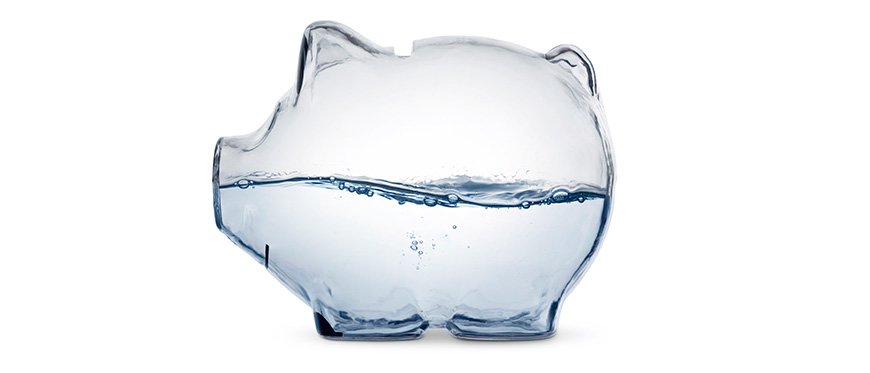For years, many hotels were literally letting profits run down the drain, by neglecting water conservation. But today, the lodging industry is leading the way in innovative water management, saving money, boosting profits and providing an excellent example of why sustainability is becoming an indispensable business practice.
Lots of water, lots of opportunity
Hotels use some fifteen percent of all the water consumed by commercial and institutional facilities. Guests use the largest share of that water, followed by hotel laundries, pools, landscaping and, yes even the lobby bar. As a result, water costs comprise nearly a quarter of total hotel utility expenses – and present an excellent opportunity for cost savings.
Two hotels making the most of water
Consider the case of the MGM Grand Hotel in Las Vegas. Set as an oasis in the desert, in a city with average rainfall of just over four inches, the MGM Grand faces significant issues both in terms of water supply (Lake Mead seems forever in danger of running dry) and cost (water rates increased twenty-five percent during a recent three-year period). In response to these challenges, MGM developed a multi-faceted water sustainability plan, including the conversion of exterior lawns to water-efficient desert landscaping, which cut annual water consumption by 21 million gallons. This reduced need for water now allows the hotel to draw up to 60% of its supply from on-site wells, rather than depend on Lake Mead. Beyond Las Vegas, MGM Resorts International has water sustainability strategies in place around the globe, yielding overall water savings of 1.2 billion gallons per year.
But you don’t have to be in the desert to profit from better water management. The Intercontinental San Francisco saves some two million gallons annually through a plan that incorporates low-flow faucets and toilets, as well as waterless urinals.
Successes like these are saving money, staving off potential regulatory threats (such as water rationing) and gaining significant recognition for hotels. MGM Resorts was even called on by the U.S. Senate to testify as an example of innovative corporate initiatives in water sustainability.
Four things you can do to save water, and money, in your hotel
Given the fact that global water demand is expected to significantly outpace clean water supply by as early as 2030, it’s time for all in the lodging industry to optimize water use.
Solutions will vary according to facility, but there are already a wide variety of water-saving solutions that can be tailored to almost any location. Here are four steps that
every hotel or hotel group should consider:
1. Assess your water use.
The first step is to understand how, where and when you are using water. The EPA Watersense H20tel Challenge will provide resources to help you assess water use and savings opportunities as well as track actual use on-going.
2. Create a water sustainability plan.
Ninety percent of companies categorized as heavy users of water already have a formal strategy for saving water, and a plan to carry it out. Once you’ve assessed your usage patterns, you can create a written implementation plan and socialize it throughout your organization (employees feel better about their work when they see their employer doing things for the greater good).
3. Explore new solutions, from the common-sense to the creative.
From recycling sprinkler water, to replacing grasses with self-sustaining landscaping; from examining whether your new hotel really needs a pool, to making sure it’s always covered when not in use; from switching to new laundry detergents that require much less water to getting guests to switch from daily to only-when-needed towel and linens replacement––you can quickly assemble a water saving plan that suits your facilities.
4. Involve your guests.
The need for water conservation is a well-known concern, and positive plans to address it are well-received by guests (68% of consumers say they’d prefer to book a room at an eco-friendly hotel). Once you’ve created your plan, be sure to promote it in a way that invites guests to participate through conscious water use.
Maintaining a sufficient, affordable water supply is both a responsibility and opportunity for every business. Thankfully, hotels are charting a course that others can follow.
SOURCES
Smart Meetings: Hotels Reduce Water Use
Environmental Leader: Hotel Water Use
CBRE: Consumption and Pricing Influence Hotel Utility Costs
Vox: Water is getting much, much more expensive
Just Means/Better Business: MGM Grand Practices Water Conservation in Las Vegas
PR Newswire: MGM Resorts Testifies at US Senate
Green Hotelier: Sustainable Management of Water
